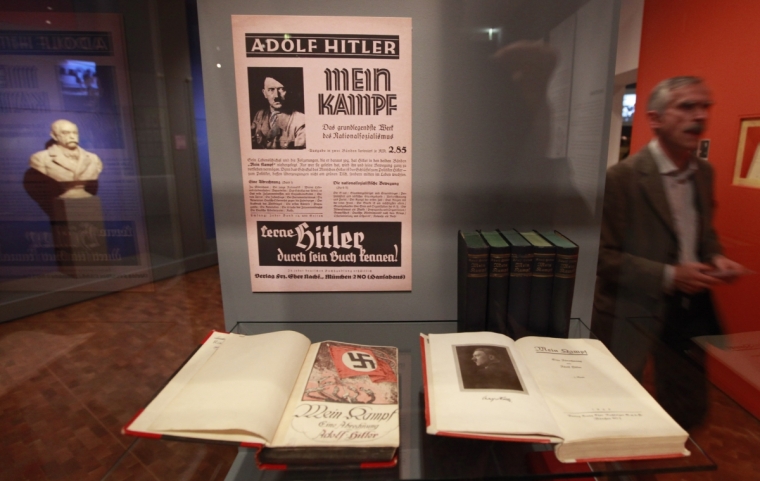He's back: Critical edition of Hitler's Mein Kampf will be republished in 2016

BERLIN (Christian Examiner) – All of Europe is abuzz with news that Adolf Hitler's manifesto Mein Kampf, or My Struggle, will be republished in January for the first time in 70 years – and at the same time Europe is dealing with its worst immigration since the world-wide war the Nazi leader started.
The book, first published in 1925 and 1927, provided evidence of Hitler's territorial ambitions and his desire for revenge against the world powers that had humiliated Germany after World War I, but it also laid bare his hatred of the Jews and other minorities he saw as the root cause of his nation's difficulties.
This is no "straight publishing" of the work, however. According to Andreas Wirsching, director of the Institute of Contemporary History in Munich, the text will be accompanied with historical annotations, scholarly comments and critical analysis of Hitler's errors to "shatter the myth" surrounding the book.
Three years ago, a British publisher came forward with a plan to reproduce portions of Mein Kampf in the form of a pamphlet. The state of Bavaria, however, objected to the printing because it has held the copyright since 1945. However, since German copyright law only allows legal protections for 70 years, the book can be republished as an open source text next year.
As long as the taboo applies, there is a longing to possess what is supposedly forbidden. One would do well to overturn this myth.
According to Wirsching, as many as 4,000 copies of the Nazi treatise will be published, but most will be used strictly for academic purposes. German justice ministers have reportedly pledged to keep the book away from the general public for fear of inciting neo-Nazis. However, many original copies of the book, published in the millions during the Nazi era, still exist around the world.
The president of Germany's Center for Political Education, Thomas Krüger, said he believes it is time for Germany to delve into history in a critical way with the aim of breaking the "taboo" associated with the book.
"As long as the taboo applies, there is a longing to possess what is supposedly forbidden. One would do well to overturn this myth," Krüger said.
Christian Hartmann, one of the historians involved in the critical examination of the book, presented the scholars' work to journalists sitting beside Wirsching. Hartmann said the treatise is "really one of the best relics we have of the Third Reich."
Another scholar on the project said the scholars know many Germans will be understandably uncomfortable with the publication of the book. Magnus Brechtken, deputy director of the Munich-based history institute, said the book will be an "anti-Hitler text."
"I understand some immediately feel uncomfortable when a book that played such a dramatic role is made available again to the public. On the other hand, I think that this is also a useful way of communicating historical education and enlightenment – a publication with the appropriate comments, exactly to prevent these traumatic events from ever happening again," Brechtken told the UK Express newspaper.
Still, many view the publication of the book as dangerous – "too dangerous," said Florian Sepp, who leads the historical division of the Bavarian State Library.
The community in German with the most to lose from a revival of Hitler's ideology is dead set against the republication of the book. One Jewish leader, Dieter Graumann, former president of the Central Council of Jews in Germany, said Hitler's words are still powerful motivation for anti-Semitism when in the wrong hands.
"This book was and will remain a pure anti-Semitic work of irrational hatred that should be forbidden for evermore. It is an abhorrent pamphlet full of incitement of the Jewish people and it brutally hurts the feelings of the Shoa [Holocaust] survivors," Graumann said last year when people began discussing the publication of the book.
Luxembourg's Prime Minister Xavier Bettel said any publishing house that sells the book in his country, as well as the shop that sells it, could face harsh penalties because the book still would violate that country's laws against inciting hatred and violence. Those penalties include both time in prison and monetary fines.